Police and Public Safety
In case of an emergency dial 911. For non-emergencies, contact Pitt State Police at 620-235-4624.Address: 203 East Cleveland, Pittsburg, KS
For non-emergency questions, services and information, including records requests and more.
Loitering, abandoned objects, aggressive behavior, vandalism, unusual odors.
Sexual harassment, sexual assault, domestic violence, dating violence, and stalking
Purchase parking pass, pay fine, view maps, and check guidelines.
Overview of incidents, concerns, and measures related to the safety of Pitt State campus.
View registered sex offenders who are located in the Pittsburg area.
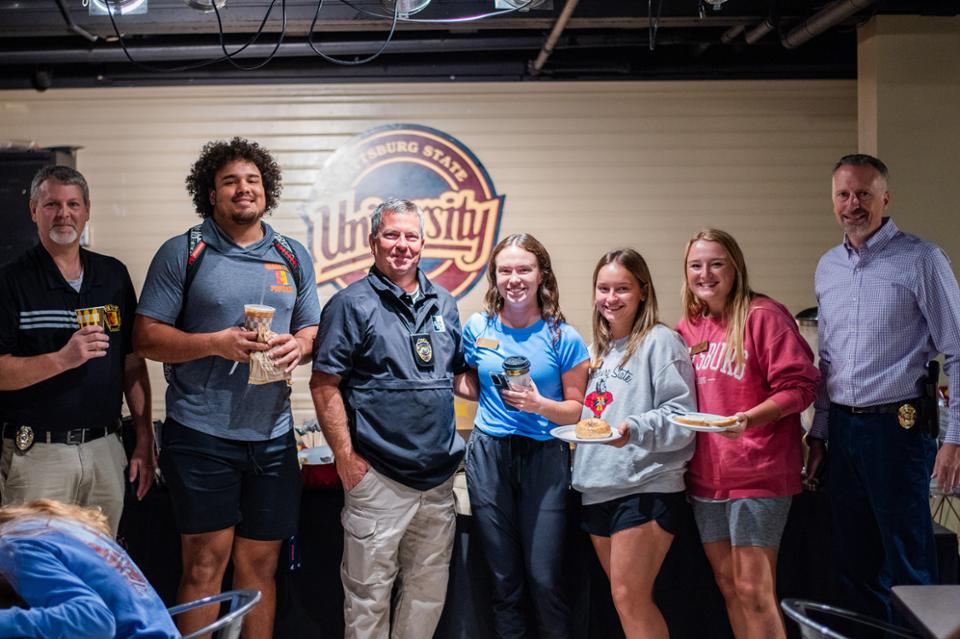
Our Police and Safety Services
- Respond to suspicious or criminal activity on campus
- Work on safety education programs
- Fingerprinting services for background checks
- Safety escort on request
- Emergency message delivery, RAVE
- Dispatch to on-campus emergency phones
- Connect with City of Pittsburg for bike registration
- Secure/unlock campus buildings
- Lost and found
- Vehicle unlocks and jump-starts
- Building/facility checks for prohibited items
- Campus surveillance
Engaging Workshops
Our officers are available to address your fraternity, sorority, residence hall, class, or any other group, discussing crucial subjects like drug awareness and crime prevention.
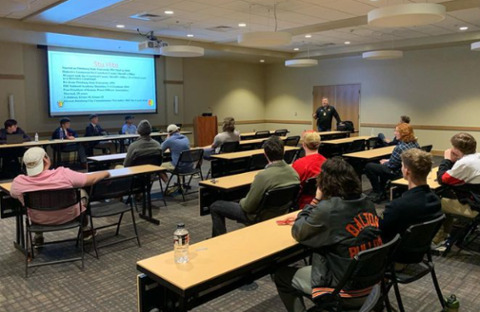
Be Gorilla Ready: Emergency Management
Fire
- Activate the fire alarms system at the nearest pull station as you exit.
- Knock on doors and yell “fire” as you depart.
- Do not use elevators.
- Assist individuals with disabilities to a safe location and notify emergency personnel.
- Once outside, keep clear of entrances. Move at least 100 feet away from the building and avoid emergency vehicles.
- Using fire extinguishers by trained individuals is optional (use only for small trash-can-size fires). Yell out for help and keep the exit behind you. Upon emptying the extinguisher, immediately exit. Do not go back or re-enter the space if fire is still present. Activate the fire alarm pull station.
Active Attack Awareness
- Run: Have an escape plan, evacuate, leave your belongings. Help others if possible. Call 911 when you are safe.
- Hide: Be out of shooter/attacker's view. Lock doors and block them with furniture or whatever's available. Keep your option for movement, silence your phones, be quiet.
- Fight: Act aggressively. Incapacitate the attacker. Throw objects. Yell & call for help. Fight only as a last resort. Be prepared.
Tornado
Locate the tornado shelter signs in your building or ask your department head. Pittsburg's Outdoor sirens will sound. Check your local TV or radio stations or the weather app on your cell phone and it will notify you when it is necessary to take cover.
- If outside, seek shelter immediately and stay indoors during the storm.
- Go to the interior hallways on the lowest level of the building.
- Stay away from windows, doors, and outside walls. Protect your head.
- Leave mobile homes, trailers, and vehicles and go to a substantial structure.
Bomb Threat
If a caller threatens a bomb attack, try to keep the caller on the line and have another person notify Pitt State Police at 911 or 620-235-4624.
Take note of background sounds (e.g., other people talking, traffic noises) and if the caller is male or female. Engage the caller in extended conversation and ask:
- Exactly where did you place the bomb?
- What time is it set to go off?
- What does the bomb look like?
- What kind of explosive did you use?
- How will the bomb be set off — by time mechanism, oxidizing agent, heat, or movement?
- Why did you place the bomb in this building?
- May I have your name?
Severe Weather
Ensure you have a way to receive watch and warning alerts during severe weather.
- Lightning: Seek shelter if possible or stay in your vehicle. Avoid open fields, trees, light poles, and bodies of water.
- Hail: Get inside and stay away from windows; get off of athletic fields.
- Flooding: Do not drive or walk into flood waters – find an alternate route.
- Extreme heat: Stay hydrated and wear light clothing; if outside, wear sunscreen and take breaks.
- Extreme cold: Wear layers and dress warmly; have a backup power supply available.
Medical Emergency
Call 911 from any telephone. (If using campus phones, dial 9, then 911.) Describe the nature of the medical problem and the location of the emergency.
- Do not attempt to move a person who has fallen or appears to be in pain.
- Provide first aid to someone who is ill or injured and in need of immediate care.
- Remain with the injured person until help arrives.
File a Police Report
If you need to file a police report, contact our Police and Public Safety department.
We'll arrange a meeting at Shirk Hall or dispatch an officer to your location for a confidential discussion about the incident.
This one-on-one conversation with a police officer allows you to share the details of the incident in a safe and supportive environment.

Police and Public Safety Policies/Plans
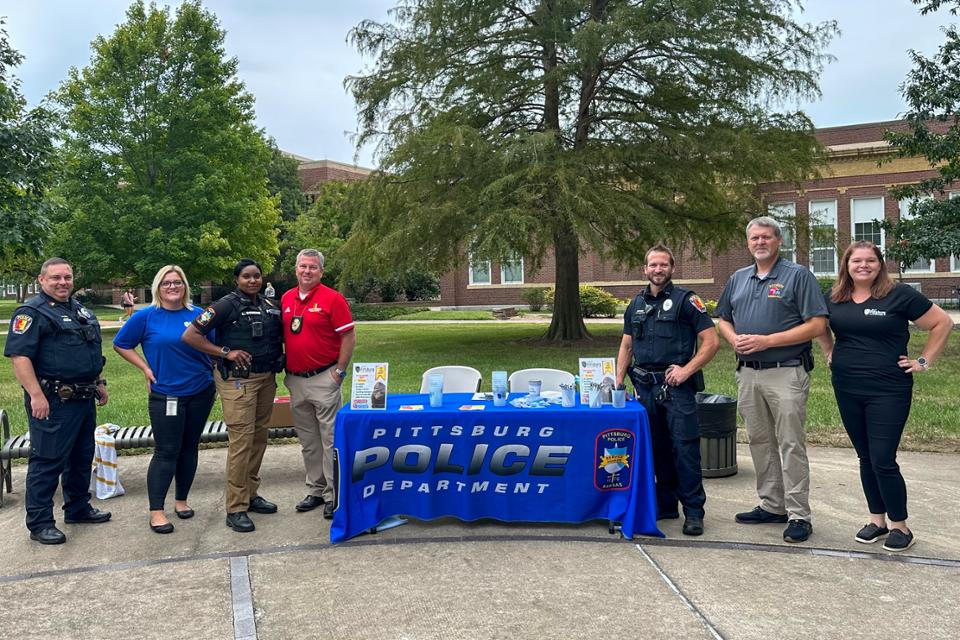
Stay in the Loop
Stay informed about campus safety updates, crime prevention tips, and emergency notifications.
Follow Us on Instagram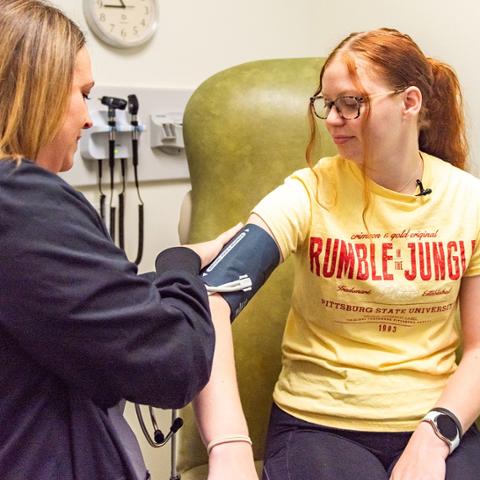
Get medical assistance to address health-related concerns and emergencies on campus.
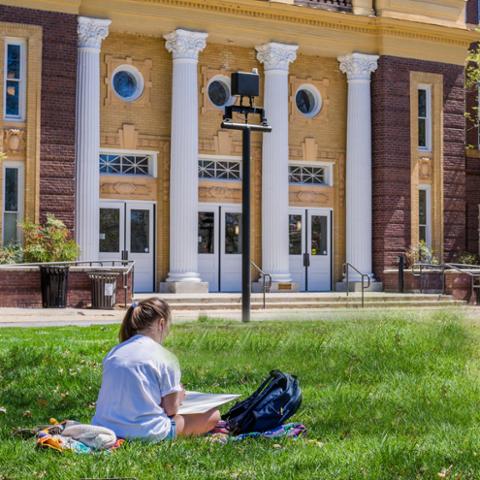
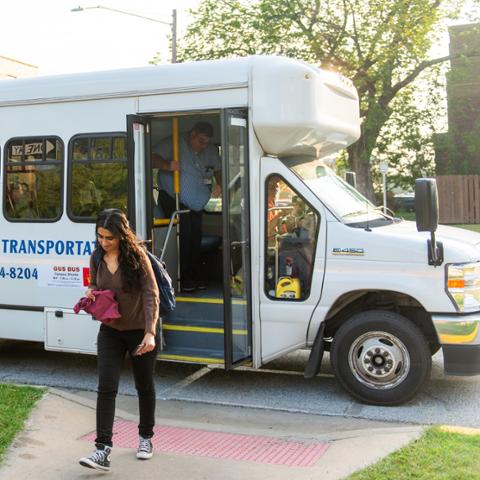
Meet the staff
Our Community.












